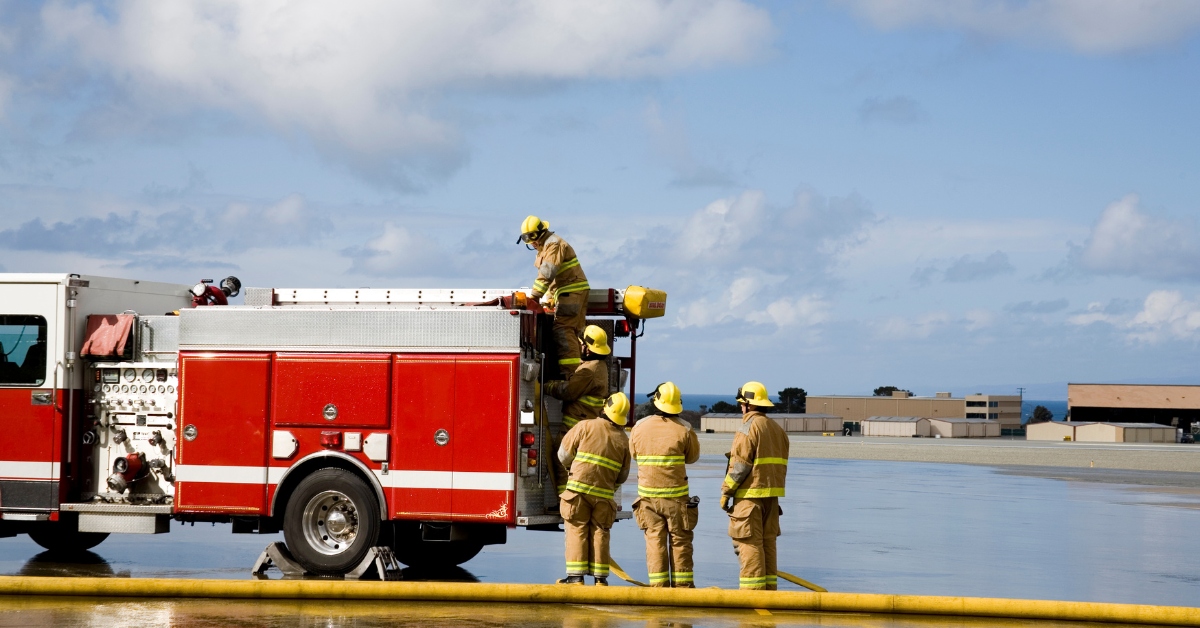A class-action lawsuit was settled by Tyco Fire Products for $17.5 million, resulting from PFAS contamination caused by its firefighting foam. The settlement was submitted to a judge in South Carolina. Tyco will also pay for a new water line that will give the residents of Peshtigo, Wisconsin, a new source of clean drinking water. The company has been long-known for testing and mixing foam using “forever chemicals.”
There are over 900 pending firefighting foam cases for South Carolina’s Southern District in the U.S. District Court. Each lawsuit alleges that the foams, which contained PFAS chemicals, polluted groundwater near industrial sites, airports, and military bases where the foam had been used to put out liquid fuel fires. Plaintiffs suffered personal injuries, property damage, and other economic losses. Some even needed medical monitoring.
Plaintiffs Included in the Settlement
According to Tyco’s press release, people from 271 households residing in Peshtigo, Wisconsin, from January 1, 1965, through December 31, 2020, who had private wells on their property were included in the settlement.
A large portion of the settlement ($15 million) will be used to allocate class-wide claims, including property damage. The remaining $2.5 million will be given to people who were diagnosed with preeclampsia, thyroid disease, ulcerative colitis, kidney cancer, and testicular cancer.
According to the attorney representing the plaintiffs, residents will receive between $60,000 and $70,000 for each property, depending on the level of contamination present.
Richard B. Gergel is the judge presiding over cases throughout the country involving aqueous film-forming firefighting foam (AFFF) and polyfluoroalkyl substances (PFAS). He will assign a special appointee to make the determinations. The first AFFF case to be settled was the lawsuit from Peshtigo.
Groundwater Contamination
Tyco Fire Products is one of the primary manufacturers of aqueous film-forming firefighting foam. While the product effectively puts out liquid fuel fires, it can be challenging to clean up. One reason for this is that the foam contains PFAS – cancer-causing chemicals that accumulate in the body. In the environment, these same chemicals can also take years to break down.
While Peshtigo, Wisconsin, was one of the worst contamination sites, the rest of the state also detected high levels of PFAS. The contamination began near a Tyco Fire Products testing facility used to test firefighting foam for years. In fact, a Tyco Fire Training Center had been operating in Marinette, Wisconsin. According to Wisconsin’s Natural Resources Department, wastewater containing PFAS chemicals from the firefighting foam was spilled from the facility, contaminating Peshtigo’s groundwater.
The Department of Natural Resources also referred Johnson Controls and Tyco Fire Products to the Department of Justice for the state of Wisconsin, accusing the company of waiting too long (4 years) to report the release of its hazardous chemicals from its Marinette, Wisconsin plant.
AFFF’s Environmental Impact
PFAS are known as “forever chemicals” because they are not biodegradable. They are mobile and water-soluble in the environment. They can be transported beyond their source area, which can impact large volumes of groundwater. PFAS can also pose a risk to humans, depending on the location of surface waters and drinking-water supply wells and the airport or military installation’s site setting.
Mounting evidence continues to show risks to human health and potential negative socioeconomic, human health, and environmental impacts. Environmental regulators have dramatically accelerated their focus on PFAS chemicals during the last five years. For instance, PFAS detection in drinking water along with the EPA’s long-term health advisory level was 70 parts per trillion.
Best management practices and approaches that limit the discharge of artificial, toxic chemicals into the environment while also protecting individuals must be considered due to the growing concerns about the harmful effects of PFAS in drinking water.
Cancer Risks
Several severe and sometimes deadly cancers were linked to regular exposure to AFFF, despite its effectiveness in containing fires. Some of these chemicals exposed many high-risk individuals, including firefighters. Exposure to AFFF was caused by inhalation, skin absorption, or water ingested through contaminated sources.
By definition, carcinogens are harmful substances that can cause a person to develop cancer. The substances can damage the material of a person’s cells or interfere with the cell’s metabolic processes.
Individuals who are exposed to PFOA or PFOS long-term have an increased risk of developing cancer. According to more recent studies, PFAS chemicals exhibit similar qualities and carcinogens that can weaken a person’s immune system, affect their cell DNA, induce inflammation, cause cell proliferation, and affect cell communication. In lab studies, animals were also shown to have developed cancer from these chemicals.
The cancers that are associated with PFAS include the following:
- Testicular cancer
- Prostate cancer
- Bladder cancer
- Lymphoma
- Kidney (renal) cancer
- Leukemia
- Pancreatic cancer
The highly durable chemicals in PFAS can remain in an individual’s body for decades, do not break down over time, and are hazardous chemicals to work with. Anyone who has come into contact with these chemicals will need the advice of an experienced legal professional.
Find a Firefighter Foam Lawyer Today
You may be eligible to file an AFFF lawsuit against the manufacturers that made the firefighting foam if you or someone you love were exposed to AFFF and were diagnosed with cancer. You could receive financial compensation for your illness or any other injuries you may have sustained.
Our firefighting foam lawyers will work with you every step of the way to ensure that you receive the compensation you rightfully deserve.
Call The Eichholz Law Firm at (855) 551-1019 or fill out an online contact form for a free case evaluation.

